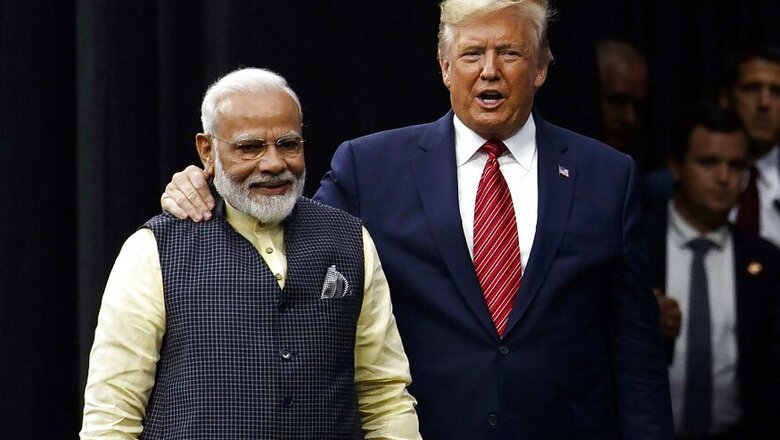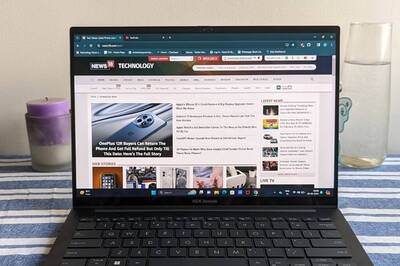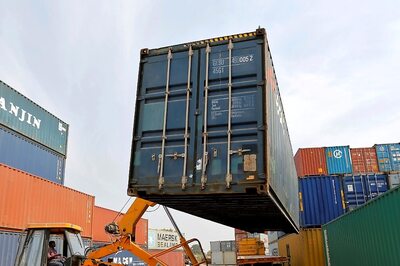
views
New Delhi: There’s been non-stop buzz ahead of Prime Minister Narendra Modi’s visit to the United States about the possibility of a limited trade deal between the two countries, with industry experts cautiously optimistic.
US India Business Council President Nisha Desai Biswal told News 18 that they are keeping their fingers crossed.
“The two sides have been at a fairly robust level of talks,” she said. “Commerce minister Piyush Goyal and the lead negotiator on the other side, United States Trade Representative (USTR) Ambassador Robert Lighthizer, have been in fairly intensive talks to see if they can reach an agreement on some of the longstanding issues that have created friction in US-India trade.”
US India Strategic Partnership Forum (USISPF) Chief Executive Officer Mukesh Aghi told News 18 that he is expecting a trade deal announcement during Modi’s visit.
However, government officials have been tight-lipped, only reiterating that both sides have been engaged in discussions at official levels.
When asked why Goyal had not travelled to Washington before the United Nations General Assembly (UNGA) session as was decided and announced, first in Osaka and then in Biarritz when Trump and Modi met, an official pointed out that even though they had not personally met, they were constantly engaged in ironing out the differences.
Aghi also suggested that the issue of Generalised System of Preferences (GSP) is back on the table. The US in June had ended duty-free access for about $5.7 billion worth of Indian exports under the GSP programme, including chemicals, plastics, leather and rubber goods, and auto parts. India was the largest beneficiary of the GSP, which dates from the 1970s and is designed to help developing countries. India responded with higher retaliatory tariffs on 28 US products, including almonds, apples and walnuts.
India is the largest buyer of US almonds, paying $543 million for more than half of US almond exports in 2018, according to the US Department of Agriculture. It is the second largest buyer of US apples.
A bipartisan group of 44 influential lawmakers earlier urged the Trump administration to reinstate India’s designation as a beneficiary developing nation under the key GSP trade programme as part of the potential trade deal.
However, Desai Biswal believes that the GSP restoration will depend on how satisfactorily a mini-trade agreement between the two nations can be worked out.
A senior Indian government source said that it would be premature to talk of GSP.
Before leaving for the US with Modi, Foreign Secretary Vijay Gokhale said that India continues to remain interested in GSP, calling it “important for us as a developing country”.
US-India trade relations have been fraught — Trump has repeatedly complained about India's high tariff rates, including a 50% tariff on Harley-Davidson motorcycles.
The US has also taken issue with India's new investment rules on e-commerce that limit how companies like Amazon.com Inc and Walmart-backed Flipkart can do business in a rapidly growing online market set to touch $200 billion by 2027.




















Comments
0 comment